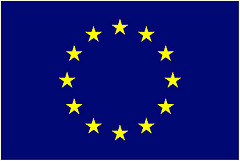Terrorism in the 21st Century – The Legal Challenge

What Legally Defines Terrorism?
The United Nations (UN) has struggled to define terrorism, especially in a legal context. As early as 1974, during the heyday of the left-wing, Marxixt-Lenninist groups such as; the Japanese Red Army (JRA), the Red Brigades (Italy), and the Baader-Meinhof Group (Germany), international lawyer Richard Baxter stated, “we have cause to regret that a legal concept of “terrorism” was ever inflicted upon us. The term is imprecise; it is ambiguous, and above all, it serves no operative legal purpose.” Even as recent as 2001, Rosalyn Higgins, former President of the International Court of Justice, wrote in her book Terrorism and International Law; “Terrorism is a term without legal significance. It is merely a convenient way of alluding to activities, whether of States or of individuals, widely disapproved of and in which either the methods used are unlawful, or the targets protected, or both.”
These statements were made before the September 11, 2001 attacks on the World Trade center however; since then increasing international pressure to take collective action against terrorist acts has made it critical to determine a distinct and legal definition of the term. This led to the implementation of the Draft Comprehensive Convention against international terrorism; an ongoing proposed treaty with the intent of criminalizing international acts of terror. At the time of writing negotiations are still underway, in fact they appear to be hopelessly deadlocked due to the variety of definitions held by different countries.
Legal complications aside, there are several words that occur in the definitions of the majority of countries throughout the world, that leave no doubt as to what constitutes an act of terror. Let's take a look at the definitions of some of the nations most recently affected by terrorism to determine those key words and phrases.

The United States
The U.S. Code of Federal Regulations, “a consolidation and codification by subject matter of the general and permanent laws of the United States,” defines terrorism as "the unlawful use of force and violence against persons or property to intimidate or coerce a government, the civilian population, or any segment thereof, in furtherance of political or social objectives" (28 C.F.R.).
The much broader legal explanation within the U.S. Code, which differentiates between domestic and international terrorism, as prepared by the Office of the Law Revision Counsel of the United States House of Representatives, reads as follows:
18 U.S.C. § 2331 defines "international terrorism" and "domestic terrorism" for purposes of Chapter 113B of the Code, entitled "Terrorism”:
"International terrorism" means activities with the following three characteristics:
-
Involve violent acts or acts dangerous to human life that violate federal or state law;
-
Appear to be intended (i) to intimidate or coerce a civilian population; (ii) to influence the policy of a government by intimidation or coercion; or (iii) to affect the conduct of a government by mass destruction, assassination, or kidnapping; and
-
Occur primarily outside the territorial jurisdiction of the U.S., or transcend national boundaries in terms of the means by which they are accomplished, the persons they appear intended to intimidate or coerce, or the locale in which their perpetrators operate or seek asylum.*
"Domestic terrorism" means activities with the following three characteristics:
-
Involve acts dangerous to human life that violate federal or state law;
-
Appear intended (i) to intimidate or coerce a civilian population; (ii) to influence the policy of a government by intimidation or coercion; or (iii) to affect the conduct of a government by mass destruction, assassination, or kidnapping; and
-
Occur primarily within the territorial jurisdiction of the U.S.
18 U.S.C. § 2332b defines the term "federal crime of terrorism" as an offense that:
-
Is calculated to influence or affect the conduct of government by intimidation or coercion, or to retaliate against government conduct; and
-
Is a violation of one of several listed statutes, including § 930(c) (relating to killing or attempted killing during an attack on a federal facility with a dangerous weapon); and § 1114 (relating to killing or attempted killing of officers and employees of the U.S.).
* FISA defines "international terrorism" in a nearly identical way, replacing "primarily" outside the U.S. with "totally" outside the U.S. 50 U.S.C. § 1801(c).
Whether considering the long form or the short version, international or domestic acts, two words that stand out as being critical in defining terrorism according to the US Government are: violence and intimidation.

United Kingdom
In their Terrorism Act 2000, the United Kingdom (UK) defines terrorism as follows:
Terrorism: interpretation.
(1)In this Act “terrorism” means the use or threat of action where—
(a)the action falls within subsection (2),
(b)the use or threat is designed to influence the government [F1or an international governmental organisation]F1 or to intimidate the public or a section of the public, and
(c)the use or threat is made for the purpose of advancing a political, religious [F2, racial]F2 or ideological cause.
(2)Action falls within this subsection if it—
(a)involves serious violence against a person,
(b)involves serious damage to property,
(c)endangers a person’s life, other than that of the person committing the action,
(d)creates a serious risk to the health or safety of the public or a section of the public, or
(e)is designed seriously to interfere with or seriously to disrupt an electronic system.
(3)The use or threat of action falling within subsection (2) which involves the use of firearms or explosives is terrorism whether or not subsection (1)(b) is satisfied.
(4)In this section—
(a)“action” includes action outside the United Kingdom,
(b)a reference to any person or to property is a reference to any person, or to property, wherever situated,
(c)a reference to the public includes a reference to the public of a country other than the United Kingdom, and
(d)“the government” means the government of the United Kingdom, of a Part of the United Kingdom or of a country other than the United Kingdom.
(5)In this Act a reference to action taken for the purposes of terrorism includes a reference to action taken for the benefit of a proscribed organisation.
Amendments (Textual)
F1
Words in s. 1(1)(b) inserted (13.4.2006) by Terrorism Act 2006 (c. 11), s. 34; S.I. 2006/1013, art. 2
F2
Words in s. 1(1)(c) inserted (16.2.2009) by Counter-Terrorism Act 2008 (c. 28), ss. 75(1)(2)(a), 100(5) (with s. 101(2)); S.I. 2009/58, art. 2(a)
Again in the UK version the words “violence” and “intimidation” are prominent.

European Union (EU)
The EU legal definition of terrorism is a lengthy and complicated one due to the plethora of countries whose laws it must consider. Its gist however, according to the German Law Journal, is captured in Article 1 of the Framework Decision, which reads as follows:
Article 1(1): “Each Member State shall take the necessary measures to ensure that the international acts referred to below in points (a) to (i), as defined as offences under national law, which, given their nature or context, may seriously damage a country or an international organisation where committed with the aim of:
- seriously intimidating a population, or
- unduly compelling a Government or international organisation to perform or abstain from performing
any act, or
- seriously destabilising or destroying the fundamental political, constitutional, economic or social
structures of a country or an international organisation, shall be deemed to be terrorist offences:
(a) attacks upon a person’s life which may cause death;
(b) attacks upon the physical integrity of a person;
(c) kidnapping or hostage taking;
(d) causing extensive destruction to a Government or public facility, a transport system, an
infrastructure facility, including an information system, a fixed platform located on the continental shelf, a public place or private property likely to endanger human life or result in major economic loss;
(e) seizure of aircraft, ships or other means of public or goods transport;
(f) manufacture, possession, acquisition, transport, supply or use of weapons, explosives or of nuclear,
biological or chemical weapons, as well as research into, and development of biological and chemical
weapons;
(g) release of dangerous substances, or causing fires, floods or explosions the effect of which is to
endanger human life;
(h) interfering with or disrupting the supply of water, power or any other fundamental natural resource
the effect of which is to endanger human life;
(i) threatening to commit any of the acts listed in (a) to (h).”
Again we see the word “intimidating,” while other expressions such as: “attacks”, “destruction”, “weapons” and “causing fires” undoubtedly imply violence.

Barriers to Concensus
Considering the definitions of terrorism by the above states, it would seem that they have more in common than not. So where lies the problem in gaining an international consensus regarding a common legal definition? The answers lie somewhat within the text of a UN General Assembly (UNGA) Press Release of October, 2005. There are as many barriers to an agreement as there are countries. These obstacles come in the form of actual wording, possible interpretation, political systems, and even personal ideologies. The Malaysian delegate for instance stated that; “until all countries agreed on the enemy they sought to defeat, there would always be loopholes and safe havens for those criminals to escape justice and the rule of law”.
Religion also plays a role in obstructing the implementation of a clear international legal definition of terrorism. Profiling and targeting members of specific religions is a concern, and an area where international lawmakers must tread lightly. Another worry is that the actions of religious fanatics will be glorified by associating their faith with executed terrorist acts. The delegate from Singapore expressed their concerns as such; “It would be wrong to dignify the murders that these terrorists have committed around the world by associating them with any great religious faith of the world”.
Other comments by delegates revealing possible impediments to formulating an agreed international legal definition of terrorism during the 2005 UNGA were:
"political and socio-economic injustices prevailing around the world must be removed if we are to uproot the malaise forever” Iftekhar Ahmed Chowdury, Bangladesh
"other elements are also essential in the fight against terrorism, such as dialogue; understanding the reasons leading to terrorism; education; eradication of the causes of terrorism; cooperation among States and full respect for international law, particularly the United Nations Charter; human rights, and fundamental freedoms." Michela Bovi, San Marino
"combating terrorism should not become a matter of suppressing human rights." Zenon Mukongo Ngay, Democratic Republic of the Congo
“The fight against terrorism cannot be viewed in terms of police repression alone. Neither can such repressive acts result in absurd, indiscriminate deaths, similar to those caused by terrorism itself.” Ronaldo Mota Sardenberg, Brazil
"the legitimate struggle of peoples under foreign occupation must be distinguished from terrorism. The legitimate right of people for independence and in defence of their self-determination could also not in any way be called terrorism." Allieu Ibrahim Kanu, Sierra Leone
Summary
Though steps are being taken to establish an internationally recognized definition of terrorism, the road is long and winding, filled with sociopolitical and statutory barriers that may take decades to overcome. In the meantime terrorism spreads like a plague. Fueled by fanatics and self-serving political deviates, it captivates the disillusioned and impoverished, providing them with a purpose they would otherwise lack. Several of the delegates at the UNGA Meeting in 2005 stated that the “root causes” of terrorism must be investigated and treated before the problem could be eliminated and a legal definition established. But what are the root causes of Terrorism; where do they lie? Is it in religious fanaticism, poverty and oppression, or psychological trauma and disorder? My guess is that a portion of each is involved in the making of a terrorist.






